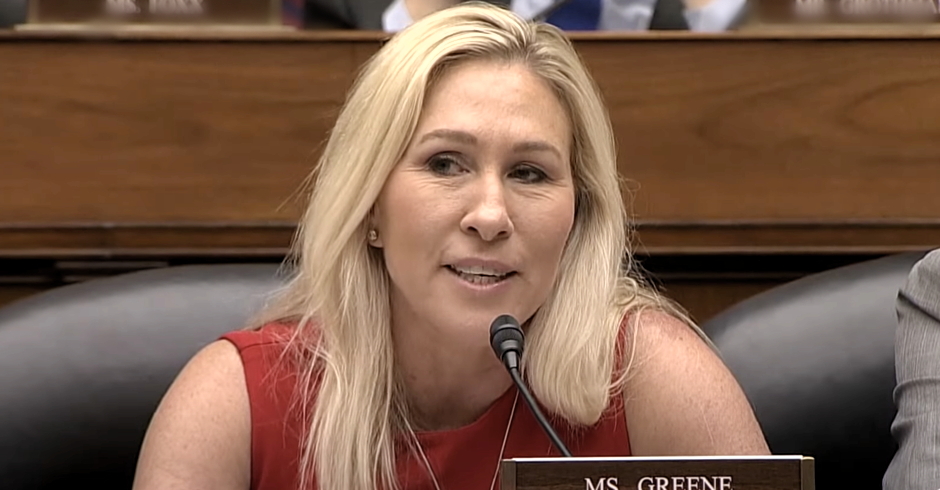UPDATED: In Wake Of Scandalous Resignation, Puerto Rico Senator’s Homophobic Legacy Lives On
Guest Author Andrés Duque shares this important story with The New Civil Rights Movement. It is cross posted from his own site, Blabbeando.
Â
Last week Republican Puerto Rican Senator Roberto Arango became embroiled in a public scandal when images of a shirtless man who appeared to be him were leaked to the press.
The images were from the gay dating phone app Grindr, which was a tad curious considering Arango’s public image was that of a divorced heterosexual man who was raising a daughter. The Senator was also known for voting in favor of several anti-gay bills.
Initially, Arango scoffed at suggestions that he was the man in the images. Then he admitted he often took photos of himself shirtless to document a weight-loss regimen but didn’t remember taking those specific images. When more explicit images leaked out, the Senator stopped talking to media altogether.
Yesterday, he resigned from the Senate.
Our favorite Latino gossip site Guanabee, broke the news in the United States. Since then, several people have asked me if I have documentation of the Senator’s homophobia. It’s been surprisingly tough to find articles and reports because most of it is offline. But, going through my files, I managed to find a few tidbits.
In early 2007 reports emerged that a legislative commission studying changes to Puerto Rico’s Civil Code was considering allowing civil unions for all couples regardless of sexual orientation. Conservative religious organizations were outraged and warned that civil unions would weaken marriage and change the family structure. They mounted a campaign against the measure and Senator Arango served as their messenger in the legislature.
From “La Católica contra unions de hecho / The Catholic leadership against civil unions†(El Vocero, March 27, 2007 – No online link):
From his seat in the Senate chamber, Senator Roberto Arango of the New Progressive Party spoke about the recent mandates from the Catholic Church regarding the governing body and announced he would present thousands of signatures against changes to the book of law.
According to his statements, the signatures were given to him on Saturday during a rosary ceremony organized by the Catholic Church on the vicinity of the Capitol building. The signers want to put a stop to the proposed changes to the Civil Code that have received sustained opposition from the more conservative organizations.
“We have received 150,000 petitions signed by people of all orientations in favor of maintaining the current Civil Code,†said Arango during yesterday’s senate session. “We will hand them over to the Secretary of the Senate so they take into consideration the massive support of the people.â€
The pressure from conservative groups led the legislative commission to shelve debate on changes to the Civil Code.
Emboldened by their success, religious organizations went a step further and called for an amendment to the state constitution banning legal recognition of any relationship other than marriages between a man and a woman.
A bill was quickly introduced and, on November 7th of 2007, it passed in the Senate by a vote of 20 to 2 and 1 abstention. Senator Arango voted in favor (a tally of those voting in favor can be found in a blog post by leading Puerto Rican LGBT rights advocate Pedro Julio Serrano titled “The New Progressive Party and the LGBT communityâ€).
“Resolución 99”, as the constitutional amendment bill is known in Puerto Rico, was blocked in the House of Representatives that same year and proponents have dropped efforts to re-introduce it for now.
In September of 2009, Senator Kimmey Raschke managed to sneak in a bill banning adoption rights for gays by keeping the language of the bill under wraps until the last day of the legislative session. Arango, a close ally of Raschke, defended the secrecy behind the bill and assured reporters that it would be brought to the Senate floor. From “La adopción en el menú del dia / Adoption on the day’s menu†(El Nuevo Dia, September 25, 2009) :
“You will see the bill. I already spoke with Tommy [Puerto Rican Senate President Thomas Rivera Schatz]â€, said Arango, who stated that he had yet to see the amendments despite being a member of the conference committee created to iron out the [bill language] differences between the legislative bodies.
Arango would go on to vote in favor of the adoption ban and the bill. It eventually passed both houses and is currently the law in Puerto Rico.
The allegation that had been the toughest to confirm over the weekend were reports that during his first senate election campaign, Arango had held a rubber duck at a public campaign stop and mocked an opponent’s sexuality by making quaking noises and calling him a “pato†[“Patoâ€, the Spanish word for “duckâ€, is used in the island as a pejorative word for gays, akin to calling someone a “faggot†in English].
Lucky for us, today’s print issue Primera Hora includes it in a chronology of the Senator’s career and even provides a photo.
The chronology says that Arango’s political career began in 2004 when he led the Bush – Cheney presidential re-election campaign in Puerto Rico. It was then that Arango decided to run for office and became a strong ally of San Juan mayoral candidate Jorge Santini. And it was at a Santini campaign event that Arango called Santini’s opponent a ‘pato’.
From the chronology:
On October of 2004, at the closing of the San Juan mayoral campaign, rumors of [Eduardo] Bhatia’s homosexuality spread through the New Progressive Party’s rally and its leaders as they danced to a song with a chorus duck quacks. A featherless rubber chicken was thrown at the stage and rescued by Arango who referred to it as a ‘rubber duckie’
A photo caption reads Arango was overheard talking about Bhatia to someone else on the stage and saying “No le vamos a dar donde le gusta… sino hasta dentro del pelo”. It’s a difficult phrase to translate but could be interpreted to mean “We won’t give it where he likes it… instead we’ll drill it deep inside him.â€
In researching these articles, I reached out to my friend Pedro Julio Serrano, founder of the leading LGBT-rights organization Puerto Rico Para Todos. He sent me this excerpt from a press release he released to Puerto Rican media yesterday (a full Spanish-language statement is available at Pedro Julio’s blog):
This isn’t a moment to kick someone when he’s down, but I have to denounce senator Roberto Arango’s complicity with a fundamentalist agenda that promotes the exclusion and marginalization of lesbian, gay, bisexual and transgender people. His votes in favor of Resolution 99 which would have amended Puerto Rico’s constitution to ban the recognition of the freedom to marry for same-sex couples, his homophobic acts such as using a rubber duck to make fun of an opponent because in Puerto Rico the word duck means ‘faggot,’ and violating his constitutional duty to guarantee equality for all should be the real reasons for his resignation.
In the meantime, Arango might be gone from the Senate but his legacy remains.
Yesterday’s Primera Hora reports that the legislature seems ready to re-open debate of changes to the Civil Code — except for parts of the draft that address civil unions or partnership rights for same-sex couples (“Family topic postponed in Civil Code debateâ€).
That sole part of the draft caused so much public controversy that it swallowed the rest of the work that had been done and there was no expectation that we’d get back to it,†said Jennifer Gonzalez, President of the Puerto Rican House of Representatives, “So what did we do? We looked at all the [Civil Code] books and we took out those issues that might generate public controversy and that might block passage of the other books, and we will start with those four.
Allegedly, once there is legislative agreement on the ‘non-controversial’ areas, they will come back to address whether the gays deserve human rights. In other words, Arango’s homophobic spirit lives on in the Puerto Rican congress.
UPDATE:Â This is my exact point —
Not one hour after I posted this entry a friend on Twitter alerted me to an article from today’s El Vocero (“Rivera Schatz: Bhatia and Garcia Padilla are the ones who should talk the least“).
While Arango has yet to speak to press about his resignation, it was a close ally, Senate Presdent Thomas Rivera-Schatz who yesterday told reporters he had received the resignation letter from Arango. Today, in an audio interview posted in El Vocero, Rivera-Schatz goes after Arango’s past political opponents and tells them to watch their words.
So, get this: Arango quacked like a duck when making fun of then mayoral candidate Eduardo Bhadia all those years ago in 2004. Today, now that he has resigned, we get this from the Senate President:
People are tired of “the bla, bla, bla of the PPD President and the ‘quack’, ‘quack’, ‘quak’ from Bhadia”
So there you have it. The Puerto Rican Senate President calling Bhadia a fag just today. INCREDIBLE.
Pedro Julio has replied (“Rivera Shatz reckless and recurring homophobia condemned“. He states, in part, “It’s not the first time that Rivera Shatz has recklessly used sexist and homophobic comments, as he has called us ‘mentally ill, deviant and criminal.”
Pedro Julio calls for Rivera Shatz to keep his homophobia in check or resign.
Andrés Duque is long-time LGBT-rights advocate and award-winning Latino gay blogger. He writes at Blabbeando.

Enjoy this piece?
… then let us make a small request. The New Civil Rights Movement depends on readers like you to meet our ongoing expenses and continue producing quality progressive journalism. Three Silicon Valley giants consume 70 percent of all online advertising dollars, so we need your help to continue doing what we do.
NCRM is independent. You won’t find mainstream media bias here. From unflinching coverage of religious extremism, to spotlighting efforts to roll back our rights, NCRM continues to speak truth to power. America needs independent voices like NCRM to be sure no one is forgotten.
Every reader contribution, whatever the amount, makes a tremendous difference. Help ensure NCRM remains independent long into the future. Support progressive journalism with a one-time contribution to NCRM, or click here to become a subscriber. Thank you. Click here to donate by check.
 |
























